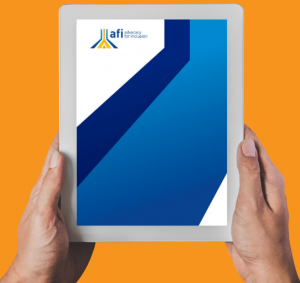
Justice and Community Safety Directorate (JACS)
Via Email Only
Response to the request for feedback on proposed legislative amendments for Sexual Assault Reform Bill 2022 (the Bill).
Thank you for the opportunity to provide feedback on this important legislative reform. AFI strongly supports the proposed amendments and has provided the below comments on disability-specific aspects of the Bill.
- Evidence of prior violence between parties in a care relationship (recommendation 23(f))
AFI strongly encourages the implementation of recommendation 23(f) of the SAPR report which states that evidence of prior violence between parties in a care relationship may be admissible in sexual offence proceedings. This is necessary to acknowledge the intersectional experiences of sexual violence by people with disability.
- How should ‘care relationship’ be defined?
- AFI considers that the following elements should be included in the definition of ‘care relationship’:
- That a care relationship includes paid and/or unpaid support, in private and/or public settings.
- That a care relationship ‘involves the provision of supports, including decisions regarding the nature of those supports, necessary for the mental and/or physical health or welfare of another person’.
- The definition must capture the diversity of care relationships that people with disability participate in. For example, in disability accommodation, a support worker may be responsible for daily tasks such as getting dressed, whereas a manager may have decision-making capacity over their daily schedule (without necessarily interacting directly with the person with disability).
- The definition must capture the different types of supports that constitute ‘care’. For example, support in mental health, mobility, access to community, cleaning, cooking, self-management or communication.
- AFI considers that the following elements should not be included in the definition of ‘care relationship’:
- The language of ‘dependence’ (as seen in section 5 (f) of the Crimes (Domestic and Personal Violence) Act 2007 (NSW)).
- People with disability are not necessarily ‘dependent’ on their carers. Care takes place in a variety of circumstances, including professional and friend networks, and sits within a broader social, economic and cultural context. Using the term ‘dependent’ invokes out-dated, paternalist and ablest narratives.
- The requirement that the relationship is ongoing (as seen in section 5 (f) of the Crimes (Domestic and Personal Violence) Act 2007 (NSW)).
- If there is evidence of prior violence, the relationship is likely ongoing. However, in the context of disability care work, this word is unnecessarily restrictive and raises potential complications regarding the meaning of ongoing. For example, whether the relationship must be long-term, continuous and/or uninterrupted, and what frequency of care constitutes ‘ongoing’. People with disability have a diversity of care relationships, including intermittent yet long-term relationships with health care practitioners, or sporadic engagement of different support workers due to the prevalence of casual workers in this sector. Unless ‘ongoing’ was adequately and broadly defined in the legislation, it may be interpreted in such a way that excluded the experiences of some people with disability.
- Other considerations:
- Unpaid carers are often family members. As a result, the legislation may need to dictate whether 23(f) or 23(e) should apply in such instances.
- Introduce a presumption that the courtroom be closed when a complainant is giving evidence in sexual offence proceedings and when an alleged victim is giving evidence in protection order proceedings that relate to a sexual assault matter (recommendation 23 (h) of the SAPR Report);
AFI strongly supports this recommendation. We note the opportunity to also include a legislative presumption that if the complainant is a minor or a person with disability, including mental ill health, then the ACT Intermediary Program will be made available to the complainant.
- Introduce a presumption of the capacity of people with disability to consent to sexual relations.
Although this issue was not discussed in the SAPR report, AFI considers it essential for ensuring that the rights of people with disability are upheld. This is because a pervasive and harmful stereotype exists which regards people with disability as a-sexual or desexualised people. This is particularly widespread for people with intellectual disability, and can contribute to an assumption that people with disability do not have the capacity to consent to sexual relations.
Rights to relationships and sexual expression are implicit within Article 23 of the UN Convention on the Rights of People with Disability.
Assumptions of lack of capacity to consent to sexual relations due to disability, and failure to incorporate supported decision-making, can result in deprivation of sexual rights of people with disability; for example, carers may be hesitant to support people with disability to have their sexual needs met.
ACT and Commonwealth legislation includes considerations of lack of capacity in negating consent. AFI is concerned that the courts will consciously or subconsciously presume a lack of capacity for people with disability, notably people with intellectual disability, to consent to sexual relations.
To ensure that the rights of people with disability are upheld, it is necessary to introduce a presumption of capacity of people with disability to consent to sexual relations, including using supported decision-making.
